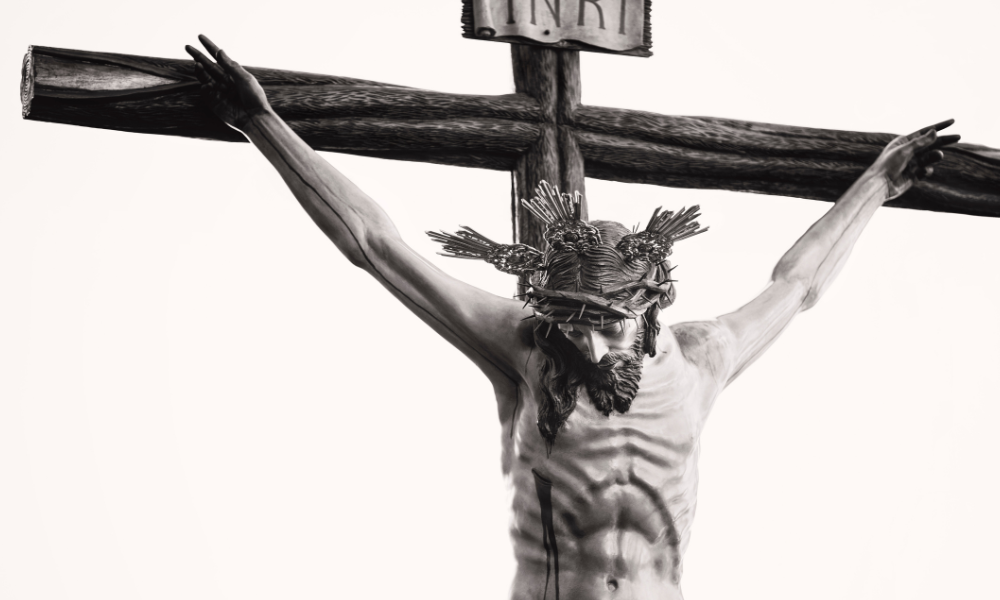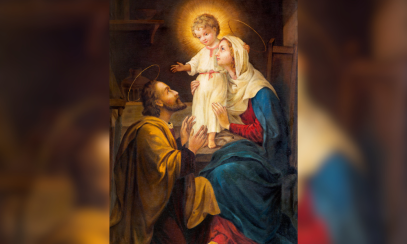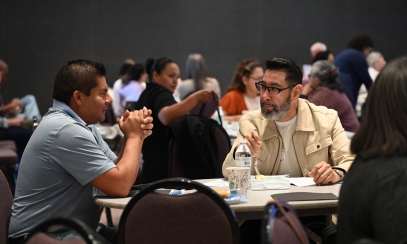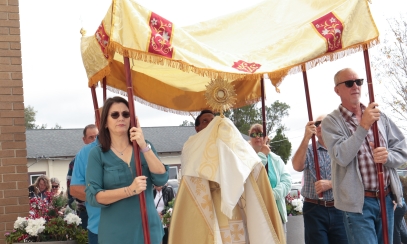
“Seven Last Words” a series, Part Four
March 14, 2023 | During Lent, we turn our focus to the greatest sermon of all time, the one which Jesus gave from the pulpit of the cross. Since Jesus made seven profound statements while being crucified, his sermon is often referred to as the “Seven Last Words.”
March 14, 2023 | During Lent, we turn our focus to the greatest sermon of all time, the one which Jesus gave from the pulpit of the cross. Since Jesus made seven profound statements while being crucified, his sermon is often referred to as the “Seven Last Words.”
Starting on Ash Wednesday, Gulf Coast Catholic will publish a seven-part series focused on each of the last seven messages of Jesus from the cross. The series is written by Father James Ruhlin, Pastor of Saint Michael the Archangel Catholic Church in Hudson Fl.
Hopefully this reflection will inspire you to contemplate the depths of the Lord’s message of love from the cross.
The first three words of the Lord from the cross have reference to physical suffering; however, the fourth refers to moral suffering or sin. Physical suffering is pain, but moral suffering is evil.
The fourth word of Christ from the cross is: “My God! My God! Why have you forsaken me?” This statement from Jesus symbolizes the sufferings of man abandoned by God. In these painful words of Jesus, we see, in some mysterious way, his human nature seemingly separated from his Heavenly Father, and yet not separated. Archbishop Fulton Sheen explained this concept in the following way: “Jesus took upon himself the sins of the world. This pain and desolation Jesus suffered for each of us, that we might know what a terrible thing it is for human nature to be without God, to be deprived of a divine remedy and consolation. It was the supreme act of atonement for three classes of people: those who abandon God, those who doubt the presence of God, and those who are indifferent to God.” This fourth word of Christ reminds us that his crucifixion was the divine act of redemption for all abandonment of God, for, in that moment in which Christ was forgotten, he purchased for us the grace of never being forgotten by God.
The fourth word of our Lord is a cry of abandonment, not one of despair. A soul that despairs never cries to God. These words demonstrate the spiritual poverty of abandonment by God. This was the hardest reparation of all. It was not difficult to be economically poor or socially poor, but it was hard to surrender divine consolation in a moment of agony to atone for the self-wise, the conceited, and the atheist. By feeling without God, Christ redeemed those who live without Him.
What death is to the body, sin is to the soul.
This is why Saint Paul refers to sin as a crucifixion of the divine life within us; hence, every soul is a Calvary (a place where Christ is crucified). Because humans were made for God, we feel sin as abandonment. Yet, we refuse to love God and wonder why we are unhappy.
A wise man once commented that “sin refused to have God on earth, so it lifted His cross above the earth.”
The fourth word of Christ from the cross is the opening of Psalm 22. This psalm begins with sadness, but ends with joy, victory, and the assurance of spiritual sovereignty over the earth. It is a great summary of Christ’s Paschal Mystery (his Passion, Death, and Resurrection). Psalm 22 reveals that King David’s enemies are mocking him, specifically because he trusts in the Lord that the Lord would rescue him.
Jesus’ cry of Psalm 22 would have been of a suffering Savior facing death for the most noble cause. This was different than most people’s notion of God. For them, God was unkillable. Here, God has become truly vulnerable for the sake of His creation and now the moment of death arises.
Lord, open our eyes to see that our forgetfulness of the horror of sin is the beginning of our ruin. Let us also see that if Christ did mount the cross for us, then we must be worth saving. For if the cross is the measure of our sin, then the crucifix is the pledge of our redemption.
God bless,
Fr. Ruhlin
 Father James Ruhlin is the Pastor of Saint Michael the Archangel Catholic Church in Hudson Fl.
Father James Ruhlin is the Pastor of Saint Michael the Archangel Catholic Church in Hudson Fl.



